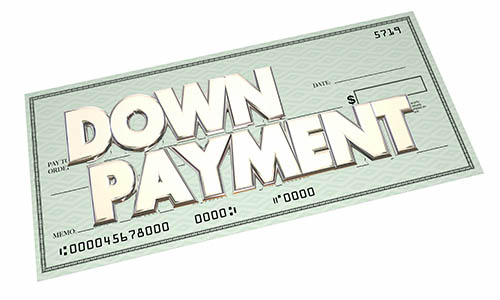The Pros and Cons of Using Your Savings to Make Your Full 20 Percent Down Payment
 If you’ve been perusing the real estate market with the hope of purchasing a home, you may be aware that the often-touted amount you should put down is 20 percent. However, there are good things and bad things involved in investing so much money into your new home. If you’re wondering how to decide on your down payment amount, here are some things to consider before putting in 20 percent.
If you’ve been perusing the real estate market with the hope of purchasing a home, you may be aware that the often-touted amount you should put down is 20 percent. However, there are good things and bad things involved in investing so much money into your new home. If you’re wondering how to decide on your down payment amount, here are some things to consider before putting in 20 percent.
No Rainy Day Fund
It might seem like the best option is to put down as much as you can, and use up your savings if needed, but putting all of your money into your home can be a mistake. While you may not foresee any financial issues arising in the next few years as you pay down your mortgage, not having any extra money can put you in a vulnerable position if the market shifts or other life issues appear. Investing in a home is a good choice, but you may want to protect some of your other assets.
Lowering Your Monthly Payment
While putting down the full 20 percent can seem like a huge chunk of change, it can be a boon for your monthly finances in the sense that your monthly mortgage payment will be automatically reduced. While this is a good thing and can make your monthly amount more manageable, it’s important to remember that your monthly payments should be affordable and you shouldn’t be stretching for extra house because you can. Make sure you’re buying a home you can afford, with or without 20 percent.
Avoiding Mortgage Insurance
Putting less than 20 percent may seem like a good decision if you’re ready to buy a home and don’t quite have the money saved, but putting less down can actually increase the cost of your home overall. Because you’ll have to pay mortgage insurance if you put down less, this will add to your monthly payment and will be money that you can’t get back. If you’re ready to dive into the market, you may want to move forward, but it can also be a better investment to wait and save a bit more.
20 percent is often the magic number when it comes to a down payment, but there are pros and cons associated with putting this much money down. If you’re currently in the market for a new home, you may want to contact your local mortgage professionals for more information.
 If you’re just getting into the real estate market, you may have heard that 20% down is the ideal percentage in order to lower your monthly payments and get your mortgage application approved. However, while 20% is often suggested, many people struggle to come up with this amount of money. If you’re staving off home ownership, here are some reasons you may not need to hold off as you long as you thought.
If you’re just getting into the real estate market, you may have heard that 20% down is the ideal percentage in order to lower your monthly payments and get your mortgage application approved. However, while 20% is often suggested, many people struggle to come up with this amount of money. If you’re staving off home ownership, here are some reasons you may not need to hold off as you long as you thought. With the rising cost of real estate, many people feel that now is a good time to buy a home to ensure a good financial future. However, if you haven’t saved up enough money to make a down payment, it’s possible you may be considering whether or not you should borrow the funds. If you’re considering a loan from friends or family, here are some points you may want to think about before asking for a loan.
With the rising cost of real estate, many people feel that now is a good time to buy a home to ensure a good financial future. However, if you haven’t saved up enough money to make a down payment, it’s possible you may be considering whether or not you should borrow the funds. If you’re considering a loan from friends or family, here are some points you may want to think about before asking for a loan.